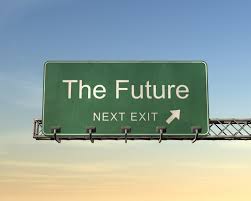
Get ready to experience the world in a new way. Lively innovation is at the heart of a cultural movement that is picking up speed. In 2014, you’ll see established approaches to a wide range of services and products rethought and shaped more to human experience, according to experts at Bentley University. The economy will continue to gradually recover, and we’ll see an improved labor market, higher consumption, and, above all, a move toward more meaningful connections between traditional institutions and communities.
Consumers Are in the Tech Driver’s Seat
Bill Gribbons, Professor of Information Design and Corporate Communications, said less often will customers have to conform to marketplace products. No longer will things be forced upon us; we will increasingly play a part in designing our experience, he said. Engineers will collaborate with innovators. New possibilities will begin to emerge in virtually every arena. These conversations will pick up pace and begin to re-imagine our future experiences, he said.
He pointed to businesses, such as Sears and Macy’s, now on the verge of obsolescence because they paid no heed to the needs of the individual. “The shopping experience of the future will be customized and personalized to people,” he said.
A similar shift is happening in healthcare, education, and government, he said. President Barack Obama has discussed both the healthcare “customer experience” and the “voter experience.” “We see it everywhere,” said Gribbons.
We are also adopting a new way of thinking about television, said Elizabeth LeDoux, English and Media Studies Director. With the advent of streaming programs on Netflix, Hulu, and Amazon, we’re moving toward individual programming, she said. Watching a cable show at a specific date and time is fast becoming a thing of the past.
She said this shift empowers women and minorities to push for more representation on screen. The success of Orange is the New Black, a Netflix film with a predominantly female cast, is a good indication. “I think we’ll see more female directors and more stories that incorporate women.”
“Now we can watch so voraciously,” she said. “And so what is on the horizon is this new way of watching and developing television. It opens up possibilities.”
Community Optimism in the Private Sector
In 2014, the private sector will advance renewable energy strategies in response to the needs of communities, suggested Rick Oches, Associate Professor and Chair of Natural and Applied Sciences. He predicted a discouraging lack of federal support on this issue but new types of innovation and collaboration coming from the business world.
Meanwhile, we should expect a stable economy during 2014 — nothing too special or destabilizing, said Atul Gupta, Professor of Finance. “I’m pretty positive on the year. It could be worse. We’ll continue plodding along.” He predicted the stock market will not go up as much this year but it’ll be fine; corporate profits are not going to be spectacular but they’ll be no dramatic change either. “There are no great fears,” he said.
Aaron Jackson, Associate Professor of Economics, also expressed optimism. He said broad-based growth in the U.S. is good news for the labor market. Unemployment will fall below 6 percent by the end of the year; consumer spending will rise; energy costs will go down; and the housing market will begin to stabilize. He said it is good news the financial sector is stabilizing — and Japan and the UK are growing steadily. “People should be optimistic. I think this will be the year that we finally do see the growth we’ve been hoping for over the last few years,” he said.
Add a stable financial sector and widespread economic advances to a whirlwind of innovation in the business community and we get: hope, growth, and new possibilities in the near future. And a good year for the individual to start making the world meet you where you’re at. Or as Gribbons said: “It is going to become a more human-centered world.”

